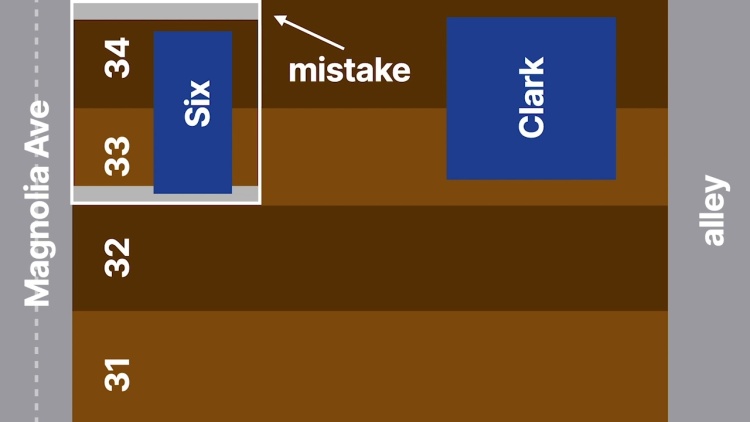Lindsey v. Clark
Virginia Supreme Court
69 S.E.2d 342, 193 Va. 522 (1952)

- Written by Richard Lavigne, JD
Facts
Clark (defendant) owned four lots and sold a portion of two lots to his daughter. The deed to Clark’s daughter reserved a ten-foot wide easement for access to Clark’s other lots along the south line of the lots conveyed. After the conveyance, Clark began to use an area adjacent to the north line of the partial lots for access to Clark’s other lots. Clark’s daughter built a house on the partial lots that encroached upon the defined easement way. The partial lots were sold by Clark’s daughter and reconveyed by the purchaser to Lindsey (plaintiff). A dispute arose between Lindsey and Clark over Clark’s use of the access way for parking. Lindsey filed suit to enjoin Clark from any further use of the access way and claimed that Clark had lost all access rights by abandoning the easement way established by deed. The trial court concluded that Clark had not abandoned the southerly easement. The trial court ruled that it would not require Lindsey to undertake the expense of removing the encroachment of the house upon the southerly easement area so long as Lindsey continued to make the northerly access way available to Clark. Lindsey appealed.
Rule of Law
Issue
Holding and Reasoning (Buchanan, J.)
What to do next…
Here's why 911,000 law students have relied on our case briefs:
- Written by law professors and practitioners, not other law students. 47,100 briefs, keyed to 997 casebooks. Top-notch customer support.
- The right amount of information, includes the facts, issues, rule of law, holding and reasoning, and any concurrences and dissents.
- Access in your classes, works on your mobile and tablet. Massive library of related video lessons and high quality multiple-choice questions.
- Easy to use, uniform format for every case brief. Written in plain English, not in legalese. Our briefs summarize and simplify; they don’t just repeat the court’s language.





